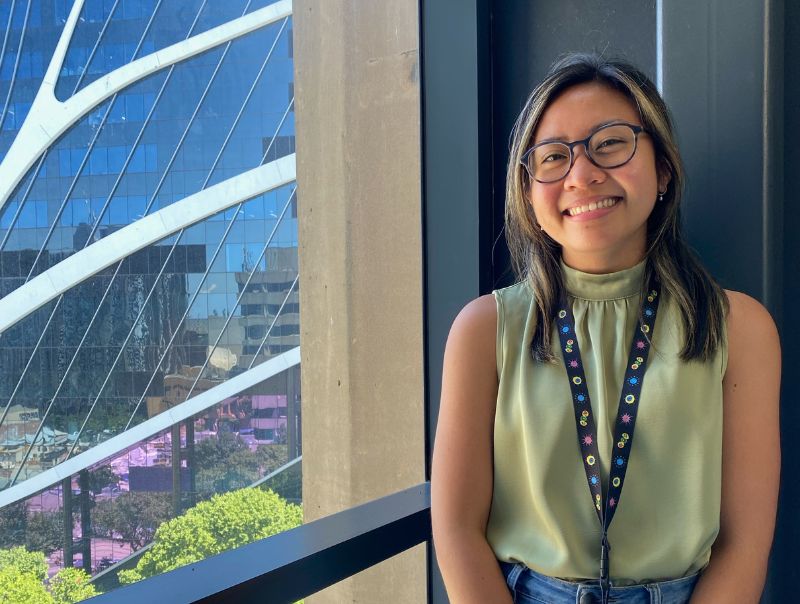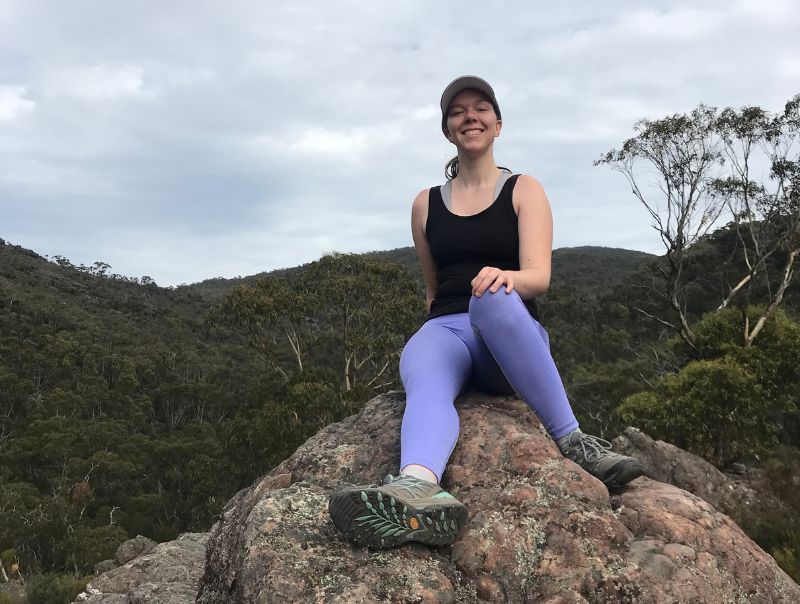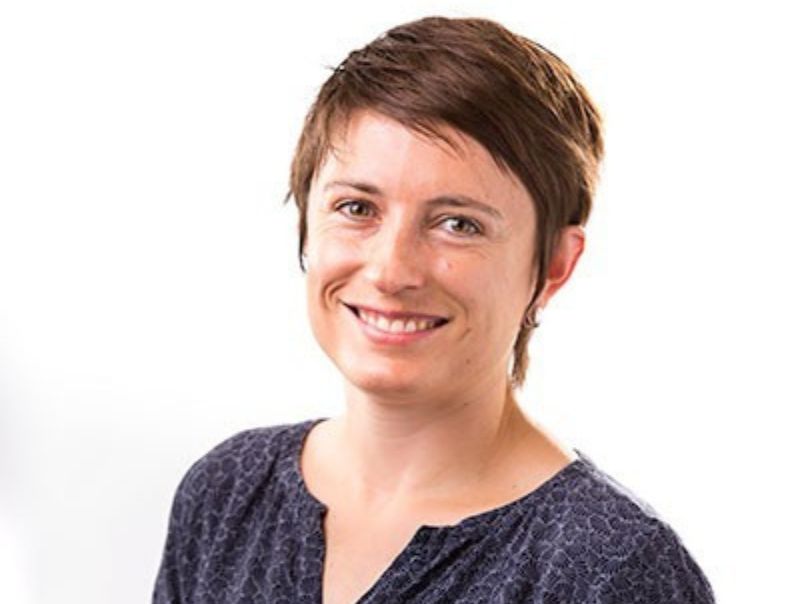11 Feb 2023
Meeting the Doherty Institute’s female scientists on International Day of Women and Girls in Science (11 February)
The last 30 years has seen a remarkable and encouraging increase in the number of women and girls entering into science and research around the world.
But there remains a significant gender gap at all levels of science, technology, engineering and mathematics (STEM) disciplines.
Women are typically given smaller research grants than their male colleagues and, while they represent 33.3% of all researchers, only 12% of members of national science academies are women.
In fields such as artificial intelligence, only one in five professionals (22%) is a woman.
Despite a shortage of skills in most of the technological fields driving the Fourth Industrial Revolution, women still account for only 28% of engineering graduates and 40% of graduates in computer science and informatics.
In 2016 the United Nations General Assembly adopted #February11 as the International Day of Women and Girls in Science (IDWGIS) to promote equal access and participation of females in STEM fields.
To mark the day, we spoke with some of the Doherty Institute’s female scientists, at different stages of their career, to learn about their journey and what it means to them to be a woman in science.
Chloe Estoque

PhD Candidate and Bacteriologist in the McDevitt Laboratory, Department of Microbiology and Immunology
I was inspired to pursue research through my high school science teacher. He highlighted the potential in me to do research at a time when I wasn’t sure what I wanted to do. It gave me purpose and since then I have come to love and enjoy it for myself and for what it is: to uncover the unknown and provide a better understanding of the world around us.
I really enjoy reading the background literature, planning an experiment, doing the experiment, and the anticipation of the results. I love how research not only feeds my love for learning, but also allows me to interact with fellow scientists and build my networks, both personally and professionally. It is such a rewarding and enjoyable career.
I feel that women still face some inherent complexities, rather than obstacles, in a research-intensive environment. But I believe that we have a generation of strong and knowing women who actively address these inequities and beyond. Though they may be faced with challenges, they do not let this get in the way of their love and passion to do great science.
As a female scientist, it is paramount to know yourself as a person and know yourself as a scientist without letting these two spheres get tangled. The measure of your success is solely defined by you, and with this perspective you will find more enjoyment and fulfilment in what you do wherever your career as a scientist or person takes you.
Eleanor Eddy

PhD Candidate in the McCluskey and Corbett labs, Department of Microbiology and Immunology, Vice President of POSSIIM
I was one of those kids who was constantly asking “why?”. I love problem solving and finding out how things work, so a career where I could spend my life being presented with unknowns and figure out how to solve them just made sense to me. Plus, I’ve had a range of great science mentors all through my academic career so far – male and female – starting with my high school biology teachers, all the way through to supervisors and colleagues that I work with now, who reaffirmed that I was on the right path.
I first started getting involved and interested in research throughout my undergraduate degree (Bachelor of Science), where I did some summer research internships. My experience there helped make my decision to enrol in an honours year, and after deciding at the end of that I wasn’t quite ready to jump straight into a PhD, I spent a couple of years as a research assistant, where I had time to expand my technical skills while taking the opportunity to think about what area of research I was interested in most. I landed on immunology and discovery research, and made my way to the Doherty institute.
Here, at the Doherty Institute, it can be easy to forget that the merit of women’s contributions to science have ever been in doubt. We are surrounded by extremely successful and talented female academics, from our director, to lab heads, to postdocs, and I’ve always found that, when I interact with them, they are generous with their time and always happy to have a chat and pass on some advice, whether they work with me or not.
While I know my experience isn’t universal, I’ve personally never felt that science wasn’t for me because of my gender. And I have generations of female scientists who came before me to thank for that. While history shows that it’s been a series of hard-fought battles for progress, I feel that, coming into science today, things have never been better for women to succeed.
As we see new generations of scientists come up in the world, I’m optimistic that things will continue to improve and change for the better. I hope that by the end of my career, younger scientists will see women and gender diverse people, from all ethnic, socioeconomic backgrounds and identities, fairly represented in every level of science and academia.
Miranda Smith

Academic Specialist - Collaborative Research in the Department of Infectious Diseases, Project Officer - Australian Partnership for Preparedness Research on Infectious disease Emergencies (APPRISE)
From an early age, I was curious and fascinated in particular by the complexity of the human body and all the systems and processes within it. I had a fantastic chemistry teacher when I was in year 11 who really inspired me to understand more about how things work, and fostered my interest. I found it so satisfying to look at an entire system and then break it down into its different components until you reached the atomic level. I especially loved biology – I vividly remember learning about Mendel’s peas and being amazed at the clever design and interpretation of his experiments.
I have taken a circuitous route to where I am now, always driven by a desire to do something interesting and useful. At school, I was into everything – sport, music, debating, science, languages. When I got to uni, I chose double undergraduate degrees in Arts and Science. I didn’t really know what I wanted to do, but I was interested in a wide range of subjects from French, history and politics to biochemistry, microbiology and immunology. I took a year out of my studies to serve as Education Officer in the student union which was an incredible experience that enabled me to engage more deeply with many social justice issues I was (and still am) passionate about, including First Nations land justice, gender equity and free education.
After that year, I returned to study with intense focus and ended up being accepted into honours in both history and microbiology and immunology. That was my “sliding doors” moment. I chose microbiology and immunology because I had an exciting opportunity to explore a new area of immunogenetics and I knew the lab well as I’d been working as a casual assistant there for a while.
My honours year was fantastic and led straight into a PhD. I moved to Zurich in Switzerland to work as a postdoc, but it was very different from my PhD experience. While I loved being in Switzerland (mountains, skiing, chocolate), my lab experience was quite lonely and challenging. I had my daughter while we were there, so had some time off and then worked part time. I was lucky to receive an NHMRC Overseas Biomedical Fellowship to fund part of my time there, and importantly to enable me to return to Australia which I did after about 3 years. The return leg of my fellowship (working with Sharon Lewin on a clinical trial for HIV latency reversal) was much more satisfying, but I knew that bench science wasn’t where I wanted to stay forever so I did a part-time Masters of Public Health to expand my options. Next came my son, the end of my fellowship and a move back to Switzerland for my husband’s work. That was a tough transition as I went there without a job. I eventually found work as a medical writer which carried through our return to Melbourne just over a year later. I’ve worked at the Doherty Institute since 2016, first as a casual writer for hivcure.com.au and then in my current role for APPRISE.
We have a fantastic pipeline of bright, enthusiastic women coming into research, but the culture and systems mean that they are still under-represented in senior positions. This is changing, but not fast enough for many women who are squeezed out at mid-career levels because of the intense competitiveness, lack of support for people with caring responsibilities and pockets of hostile culture. That’s not to say there aren’t brilliant women leading and working in research, many of whom have children or parents they care for and many places where sexual harassment and sexism are absent. We just need more of those spaces!
There are many pathways to a career in science and research. Some are more obvious than others, so don’t get stuck thinking there’s only one way to do it. There’s real strength in having people with diverse skills and experiences - study and learn what piques your interest, you never know where it might take you.


